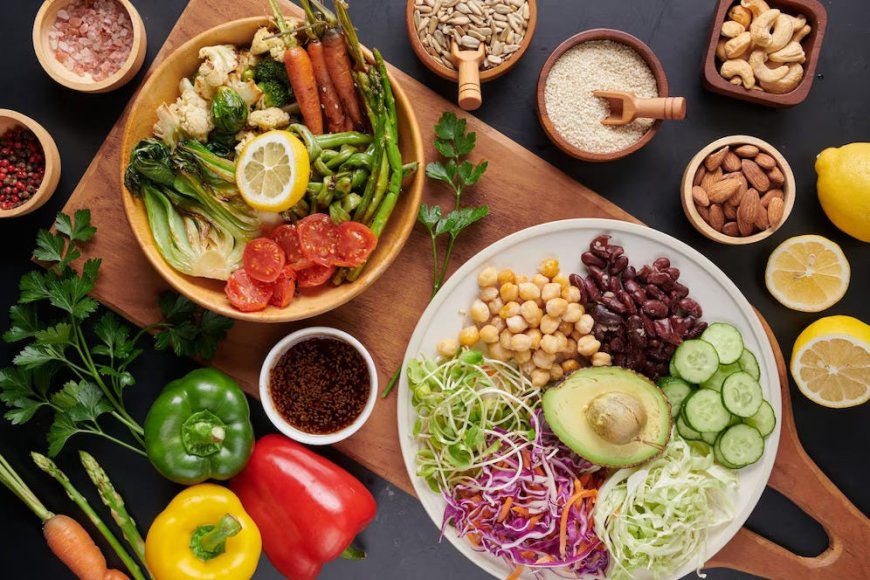From Thali to Tofu: Why Plant-Based Diets Are Booming in India
Explore how India is embracing plant-based diets like never before. Learn about the health benefits, growing trends, and expert-backed tips to start your plant-based journey today.

Once considered a fringe lifestyle, the plant-based diet is now taking root across India—and fast. From Delhi’s upscale restaurants offering oat-milk lattes and tofu tikka, to home kitchens in Pune experimenting with jackfruit biryani, the shift is real, rising, and refreshingly local.
Driven by concerns about health, sustainability, and animal welfare, Indians are increasingly turning to plant-powered plates. But here’s what’s interesting: the trend isn’t just about ditching meat—it's about redefining food through a conscious, health-focused lens.
Why Is India Embracing Plant-Based Living Now?
India has long had a cultural affinity for vegetarianism. But the new plant-based movement goes a step further—it excludes all animal products, including dairy, eggs, and even honey.
So, what’s fueling this shift?
1. Health Is a Major Driver
Recent research links plant-based diets to lower risks of heart disease, type 2 diabetes, obesity, and certain cancers. According to the Harvard T.H. Chan School of Public Health, a diet rich in vegetables, fruits, legumes, nuts, and whole grains can significantly improve long-term health outcomes.
Closer to home, the Indian Council of Medical Research (ICMR) and AIIMS are both exploring how plant-based interventions can reduce the national burden of lifestyle diseases.
2. Post-Pandemic Wellness Shift
COVID-19 forced many to rethink their lifestyles. Immunity and preventive health became priority, and plant-based nutrition was seen as a natural way to boost resilience. As per a report by The Good Food Institute India (GFI India), interest in plant-based foods surged by over 60% during and after the pandemic.
3. Environmental & Ethical Concerns
A growing number of Indians are learning that animal agriculture contributes to greenhouse gas emissions, deforestation, and water scarcity. Platforms like PETA India and World Wildlife Fund India have intensified awareness campaigns about the ethical and ecological benefits of going plant-based.
Proven Health Benefits of Going Plant-Based
If you're still wondering what makes this diet so powerful, here’s what the science says:
-
Heart Health: A whole-food plant-based diet helps lower cholesterol and blood pressure
-
Weight Management: Rich in fiber and low in calories, it naturally supports fat loss
-
Blood Sugar Control: Legumes and grains regulate insulin and reduce spikes
-
Gut Health: Fermented and fibrous plant foods promote good gut bacteria
-
Skin Clarity: Antioxidants from vegetables and fruits reduce acne and aging signs
According to NutritionFacts.org, people who follow a plant-based diet often show reduced inflammation markers, better energy levels, and improved sleep quality.
How to Get Started with a Plant-Based Diet in India
Transitioning doesn’t have to be overwhelming. In fact, India’s rich culinary heritage offers a natural foundation for plant-based living.
Here’s a step-by-step guide to help you begin:
Step 1: Start with What You Know
Dal, sabzi, rice, chapati, chutneys—most Indian meals are already plant-centric. Begin by removing ghee, paneer, curd, and replacing them with options like olive oil, tofu, or cashew curd.
Step 2: Explore Plant-Based Staples
Include these in your pantry:
-
Legumes: rajma, chana, moong, toor
-
Grains: millets, brown rice, quinoa
-
Seeds & Nuts: flaxseeds, almonds, walnuts
-
Dairy Alternatives: oat milk, almond curd
-
Protein Sources: tofu, tempeh, soy chunks
You can find many of these at stores like Nature’s Basket and Urban Platter.
Step 3: Find Trusted Recipes
Indian chefs and nutritionists are creating amazing plant-based recipes. Follow Bosh! or local creators on platforms like Sattvic Movement for inspiration.
Step 4: Read Labels Carefully
Just because something is "plant-based" doesn't mean it's healthy. Watch out for ultra-processed items with high sugar, salt, or artificial ingredients.
Step 5: Consult a Nutritionist
A well-balanced plant-based diet should not lack nutrients like Vitamin B12, iron, omega-3s, and calcium. Platforms like eSanjeevani offer free online consultations with registered dietitians.
Celebrities and Athletes Leading the Way
From Virat Kohli’s plant-forward meals to Jacqueline Fernandez’s vegan lifestyle, Indian celebrities are promoting plant-based living as not just a diet—but a statement.
Athletes like Kuntal Joisher, the first vegan to climb Mt. Everest, prove that strength and stamina are very much compatible with a cruelty-free lifestyle.
Final Thoughts: The Green Revolution on Your Plate
Whether it's for your health, the planet, or animal welfare, going plant-based in India has never been easier—or more impactful.
As more people make the switch, the plant-based diet isn’t just a trend. It’s becoming a movement rooted in wellness, sustainability, and compassion.
The best part? India’s diverse and flavorful cuisine makes this transition both delicious and deeply satisfying.
What's Your Reaction?
 Like
0
Like
0
 Dislike
0
Dislike
0
 Love
0
Love
0
 Funny
0
Funny
0
 Angry
0
Angry
0
 Sad
0
Sad
0
 Wow
0
Wow
0



















































